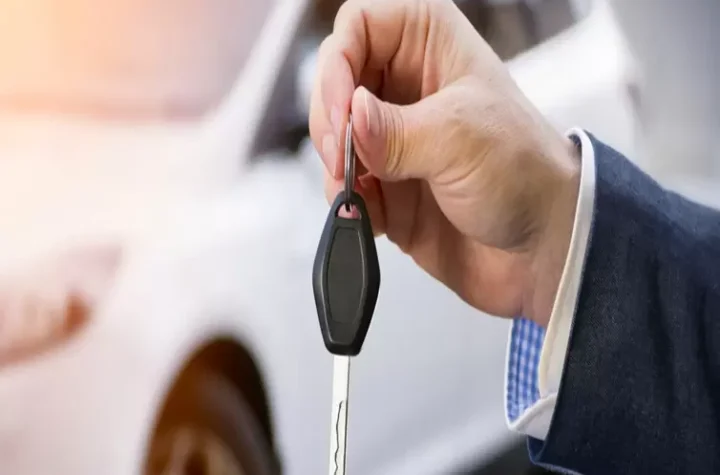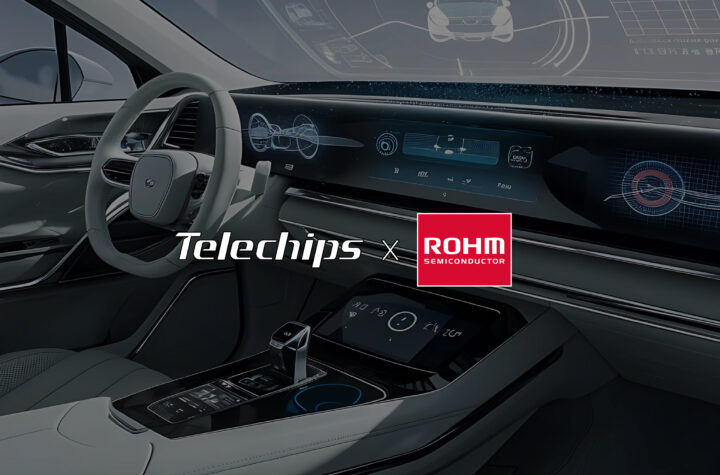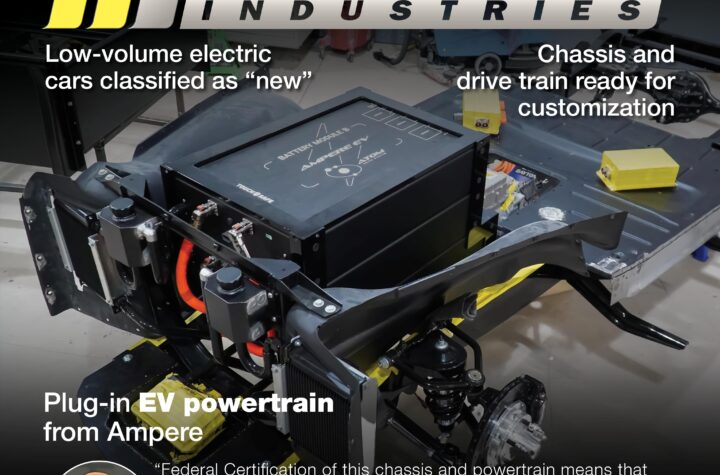
Survey Shows: Americans Want Alternative Fuel and Advanced Technology Vehicles
National Alternative Fuel Vehicle Day Odyssey 2006 Educates on Alternative Fuel and Advanced Technology Vehicles
ARLINGTON, Va., Oct. 12 /PRNewswire/ — Today the National Alternative Fuels Training Consortium (NAFTC), the coordinator of National AFV Day Odyssey, is releasing results from a national survey that indicates Americans personally believe that developing alternative fuel sources for cars, trucks, SUVs and buses is very important to them. The survey results — to be presented at the National Alternative Fuel Vehicle Day Odyssey 2006 Media Kick-off Event in Arlington, Virginia’s Court House Plaza — show 55% would consider an alternative fuel/advanced technology car, truck or SUV in their next vehicle purchase.
“This proactive information campaign has shown over the years that when people understand the benefits of alternative fuel and advanced technology vehicles, they begin to understand why these kinds of vehicles are so important,” said Al Ebron, Executive Director for the NAFTC and National AFV Day Odyssey Co-Coordinator. “Our research shows that while 93% of Americans believe that developing alternative fuel sources for cars, trucks, buses and SUVs is very important to them, there are still major barriers to overcome for consumers.”
These barriers include the number of fueling stations available, the higher cost of the vehicles and the lack of information and knowledge about alternative fuel and advanced technology vehicles.
“More work needs to be done to give consumers the information they need to make an informed decision the next time they prepare to purchase a new vehicle,” said Ebron. “Odyssey gives Americans exposure to these incredible vehicles and gives them the answers that the survey results show they are seeking.”
Odyssey 2006 is a nationwide, one day, multi-city event showcasing the latest advancement in alternative fuel and advanced technology vehicles and is part of National Alternative Fuel Vehicle Day, as designated by a resolution sponsored by Senator Robert C. Byrd and supported by 25 bipartisan Senators. The day is a collaboration of a diverse group of federal agencies, local government officials, automotive industry leaders, national associations and consumers encouraging Americans to think alternatively for a cleaner environment. Speakers at Odyssey 2006 will focus on the future of alternative fuel vehicles and their role in this country’s transportation needs.
Among others, participants at the Arlington County Media Kick-off Event include:
* Franz Wuerfmannsdobler, on behalf of Senator Robert C. Byrd
* Martha Voss, National Public Affairs Manager, Toyota Motor Sales, U.S.A
* Rick Kasper, President, Global Electric Motorcars, LLC
* Brian Wynne, President, Electric Drive Transportation Association
* Scott Hughes, Director of Governmental Affairs, National Biodiesel Board
“With a noticeable degradation of air quality, increasing awareness of alternative fuel vehicles is more important than ever,” said Ebron. “We know we are on the right path to educating the general public, but we want to carry on that progress as we work toward the future and Odyssey Day 2008.”
Vehicles on display at the Odyssey Day 2006 Media Kick-off Event include:
* Hydrogen-Fuel Cell Vehicles, a vehicle that must be able to accommodate
a high-pressure storage cylinder or some other means of storing or
producing hydrogen
* Neighborhood Electric Vehicles, cars with electric motors and
rechargeable batteries, normally limited to a speed of 35 mph. These
cars are recharged by plugging the vehicle into an electric grid
* Hybrid-Electric Vehicles, vehicles that use an internal combustion
engine or a fuel cell in conjunction with one or more electric motors
and a rechargeable battery, usually recharged internally or by the
engine or fuel cell
* Vehicles using Biodiesel Fuel, Biodiesel fuel can be mixed in blends
with diesel and used in conventional diesel vehicles
* Ethanol Flex Fuel Vehicles, the ethanol can be used alone or blended
with gasoline, 6 million of these cars are already on U.S. roads
* Natural Gas Vehicles, vehicles with advantages like low emissions,
typically lower cost of fuel, and home refueling
“The vehicles we have on display here in the nation’s capital are testament to our progress,” Ebron said. “And the broad-based participation by so many federal agencies, local government officials, automotive industry leaders, national associations, and consumers shows that we are clearly on the right path.”
Odyssey began in 2002 and today’s event in Arlington, VA is one of 60 events being held simultaneously around the United States, as well as in Canada and Germany, to celebrate the emergence of alternative energies to power cars, trucks, buses and SUVs. Odyssey is the brainchild of the NAFTC, an innovative center headquartered at West Virginia University whose mission is to train technicians and others to service the next generation of vehicles.
NAFTC’s national survey, conducted by R.L. Repass & Partners, Inc., polled adults age 18 or older regarding their behaviors and views on alternative fuel vehicles. Results show:
* Alternative fuel/advanced tech vehicles are becoming more popular. 55%
said their next vehicle purchase would very (16%) or somewhat (39%)
likely be an alternative fuel/advanced technology car, truck or SUV.
Consumers most likely to purchase an alternative fuel/advanced
technology vehicle are between the ages of 25 and 34 and 45 and 59.
* Americans are willing to pay more. Respondents said that they would be
willing to pay more for alternative fuel and advanced technology
vehicles if they provided the following benefits: Better fuel
efficiency (89%), tax breaks (83%), less dependence of foreign oil
(80%), and less pollution and better health for those around them (80%).
* More Americans are thinking alternatively. 27% said hybrid vehicles are
most likely to be a significant alternative to petroleum based fuel for
cars, trucks, SUVs and buses within 20 years. 22% said hydrogen and
fuel cell technology is most likely to be a significant alternative by
2026.















More Stories
Automotive Industries (AI) Newsletter October 2024
How Modern Equipment is Reshaping Automotive Production Standards
Automechanika Shanghai 2024